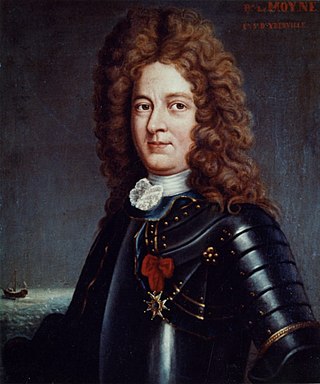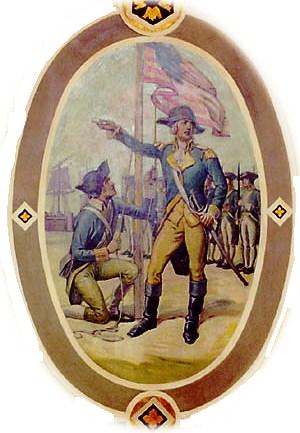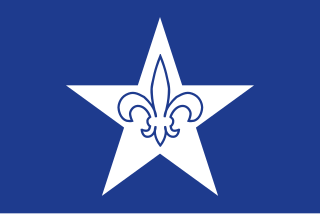| Total population | |
|---|---|
| 1,062,640 0.33% of the American population | |
| Regions with significant populations | |
| Portland, Maine • Boston • Concord • Hartford • New England • New York City • Washington • California • Washington, D.C. • Philadelphia • Orlando • Atlanta • Texas • Charlotte • Raleigh • Detroit • Columbus • Chicago • Milwaukee • Phoenix • Las Vegas • most urban areas | |
| Languages | |
| English • French | |
| Religion | |
| Roman Catholicism • Protestantism• Irreligion • Other | |
| Related ethnic groups | |
| Americans, American Canadians, Canadians |
Canadian Americans are American citizens or in some uses residents whose ancestry is wholly or partly Canadian, or citizens of either country who hold dual citizenship. [1]
The term Canadian can mean a nationality or an ethnicity. Canadians are considered North Americans due their residing in the North American continent. English-speaking Canadian immigrants easily integrate and assimilate into northern and western U.S. states as a result of many cultural similarities, and in the similar accent in spoken English. [2] French-speaking Canadians, because of language and culture, tend to take longer to assimilate. [3] However, by the 3rd generation, they are often fully culturally assimilated, and the Canadian identity is more or less folklore. [4] This took place, even though half of the population of the province of Quebec emigrated to the US between 1840 and 1930. [5] Many New England cities formed 'Little Canadas', but many of these have gradually disappeared.
This cultural "invisibility" within the larger US population is seen as creating stronger affinity among Canadians living in the US than might otherwise exist. [6] According to US Census estimates, the number of Canadian residents was around 640,000 in 2000. [7] Some sources have cited the number to possibly be over 1,000,000. [8] This number, though, is far smaller than the number of Americans who can trace part or the whole of their ancestry to Canada. The percentage of these in the New England states is almost 25% of the total population.
In some regions of the United States, especially New England or the Midwest, a Canadian American often means one whose ancestors came from Canada. [9]
The Connecticut State Senate unanimously passed a bill in 2009, making June 24 Canadian American Day in the state of Connecticut. The bill allows state officials to hold ceremonies at the capitol and other places each year to honor Americans of Canadian ancestry. [11]
As a consequence of Article 3 of the Jay Treaty of 1794, official First Nations status, or in the United States, Native American status, also confers the right to live and work on either side of the border. Unlike the U.S., Canada has not codified the Jay Treaty. Canadian courts readily reject the Jay Treaty free passage of goods right. [12]
Some institutions in the United States focus on Canadian-American studies, including the Canadian-American Center at the University of Maine, [13] the Center for Canadian American studies at Western Washington University, [14] and the University at Buffalo Canadian-American Studies Committee. [15]

Relations between Canada and the United States are extensive. The two countries consider themselves among the "closest [of] allies".

Maine is the easternmost state in the New England region of the Northeastern United States. It borders New Hampshire to the west, the Gulf of Maine to the southeast, and the Canadian provinces of New Brunswick and Quebec to the northeast and northwest, respectively. Although Maine is the largest state in New England by total area, of the 50 U.S. states it is the 12th-smallest by area, the 9th-least populous, the 13th-least densely populated, and the most rural. Maine's capital is Augusta, and its most populous city is Portland, with a total population of 68,408, as of the April 2020 census.

The Acadians are an ethnic group descended from the French who settled in the New France colony of Acadia during the 17th and 18th centuries. Most Acadians live in the Northern American region of Acadia, as it is the region where the descendants of a few Acadians who escaped the Expulsion of the Acadians re-settled. Most Acadians in Canada continue to live in majority French-speaking communities, notably those in New Brunswick where Acadians and Francophones are granted autonomy in areas such as education and health.

Bourbonnais is a village in Kankakee County, Illinois, United States. The population was 18,164 at the 2020 census.

Queen Anne's War (1702–1713) was the second in a series of French and Indian Wars fought in North America involving the colonial empires of Great Britain, France, and Spain; it took place during the reign of Anne, Queen of Great Britain. In the United States, it is regarded as a standalone conflict under this name. Elsewhere it is usually viewed as the American theater of the War of the Spanish Succession. It is also known as the Third Indian War. In France it was known as the Second Intercolonial War.

French Canadians, or Franco-Canadians, are an ethnic group who trace their ancestry to French colonists who settled in France's colony of Canada beginning in the 17th century.

The Aroostook War, or the Madawaska War, was a military and civilian-involved confrontation in 1838–1839 between the United States and the United Kingdom over the international boundary between the British colony of New Brunswick and the U.S. state of Maine. The term "war" was rhetorical; local militia units were called out but never engaged in actual combat. The event is best described as an international incident.
The French language is spoken as a minority language in the United States. Roughly 2.1 million Americans over the age of five reported speaking the language at home in a federal 2010 estimate, making French the fourth most-spoken language in the nation behind English, Spanish, and Chinese.

King William's War was the North American theater of the Nine Years' War (1688–1697), also known as the War of the Grand Alliance or the War of the League of Augsburg. It was the first of six colonial wars fought between New France and New England along with their respective Native allies before France ceded its remaining mainland territories in North America east of the Mississippi River in 1763.

Pierre Le Moyne d'Iberville or Sieur d'Iberville was a French soldier, explorer, colonial administrator, and trader. He is noted for founding the colony of Louisiana in New France. He was born in Montreal to French colonist parents.
The Quebec diaspora consists of Quebec immigrants and their descendants dispersed over the North American continent and historically concentrated in the New England region of the United States, Ontario, and the Canadian Prairies. The mass emigration out of Quebec occurred in the period between 1840 and the Great Depression of the 1930s.

Jean-François Hamtramck (1756–1803) was a Canadian who served as an officer in the US Army during the American Revolutionary War and the Northwest Indian War. In the Revolution, he participated in the Invasion of Quebec, the Sullivan Expedition, and the Siege of Yorktown. In the history of United States expansion into the Northwest Territory, Hamtramck is connected to 18th century forts at modern Midwest cities such as Steubenville, Vincennes, Fort Wayne, and Detroit. The city of Hamtramck, Michigan is named for him.
Little Canada is a name for any of the various communities where French Canadians congregated upon emigrating to the United States, in particular New England, in the 19th and early 20th centuries. A variant of Canadian French known as New England French is still spoken in parts of New England.

French Americans or Franco-Americans are citizens or nationals of the United States who identify themselves with having full or partial French or French-Canadian heritage, ethnicity and/or ancestral ties. They include French-Canadian Americans, whose experience and identity differ from the broader community.

Starting with the 1763 Treaty of Paris, New France, of which the colony of Canada was a part, formally became a part of the British Empire. The Royal Proclamation of 1763 enlarged the colony of Canada under the name of the Province of Quebec, which with the Constitutional Act 1791 became known as the Canadas. With the Act of Union 1840, Upper and Lower Canada were joined to become the United Province of Canada.
The history of the area comprising the U.S. state of Maine spans thousands of years, measured from the earliest human settlement, or approximately two hundred, measured from the advent of U.S. statehood in 1820. The present article will concentrate on the period of European contact and after.

New England French is a variety of French spoken in the New England region of the United States. It descends from Canadian French because it originally came from French Canadians who immigrated to New England during the Grande Hémorragie.

French-Canadian Americans are Americans of French-Canadian descent. About 2.1 million U.S. residents cited this ancestry in the 2010 U.S. Census; the majority of them speak French at home. Americans of French-Canadian descent are most heavily concentrated in New England, New York State, Louisiana and the Midwest. Their ancestors mostly arrived in the United States from Quebec between 1840 and 1930, though some families became established as early as the 17th and 18th centuries.

The Franco-Americans, or French Americans, are a group of people of French and French-Canadian descent living in the United States. Today there are 11.8 million Franco-Americans in the US and 1.6 million Franco-Americans who speak French at home. There are also an additional 450,000 Americans who speak a French-based creole language, for example, Haitian Creole. Even though Franco-Americans are a substantial portion of the US population, they are generally less visible than other sizable ethnic groups. This is partly because of geographical dispersal, and partly because a large proportion of Franco-Americans have acculturated or assimilated.
Franco American literature is a body of work, in English and French, by French-Canadian American authors "who were born in New England...born in Canada, [and] spent most of their lives in New England...[, or] those who only traveled through New England and wrote of their experiences." "Franco-American literature" however, as a term, has also been characterized by novels written by the Great Lakes Region diaspora as well. In a broader sense the term is also used as a handle for those writers of Cajun or French descent, outside of the Quebec émigré literary tradition.